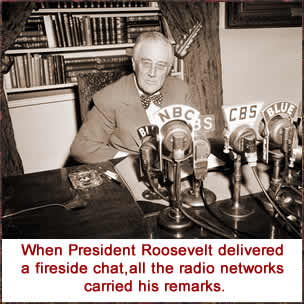Media and Washington, part I
A short reminiscence: soon after first moving to the D.C. area, in 1982-83, I happened to read a piece in the Style section of the Washington Post that puzzles me to this day. I can’t remember who wrote it–just as well–but a key line was something about being “at a [Washington-area] dinner party and finding that you’re sitting next to an English professor.” Being new to the region, and heavily under the influence of All the President’s Men and books about journalism by authors such as David Halberstam, I read the Post appreciatively. I was also a recent English professor myself, relocated to do research at the Folger Shakespeare Library, where I was a reader. (I still have my Folger reader’s card but now do research mainly at the Library of Congress, for a book I am writing.)
Years later, I still do not see what’s wrong with being seated next to an English professor. Not that there isn’t the occasional prof rudeness, of course. At an academic dinner party years ago, after winning an essay contest and delivering a talk to an audience of psychoanalysts, I was seated next to a professor who refrained from speaking to me throughout dinner.
He was prominent, and senior, and I was a very non-senior and non-prominent member of the extreme opposite sex, as Dave Barry once put it; those were the operative factors, so far as I know, since I had not wronged the man or offered provocation. Other people in the party, including his wife, compensated for him, without saying anything overt, and anyway that kind of thing does not crush me. Unlike the Bushes, my family actually was from Texas, and doing that stuff to me is like the old joke about “Have you got the wrong vampire.” Professor Deborah Tannen might find it an example of electric-blanket conversation (or non-conversation). Still, for my money, that’s the kind of English professor you’d rather not be seated next to, and admittedly it is ironic when conservatives, status-ridden individuals, and others of purported refinement and blahblahblah engage in the kind of conduct satirized by the greatest writers in the traditional literary canon–Chaucer, Shakespeare, Dickens, Austen, Bronte–but that’s an aside. The thrust of the Style piece, whoever wrote it, was not to satirize solipsistic arrogance, snobbishness, and rudeness but to imply that there’s nobody more devoid of status than an English prof. (Sad to say, some English professors of the old school probably felt the same way about journalists.)

On the 'electric blanket'
Water under the bridge by now, of course–except that the Style attitude pretty much reflected that of the national political press, going far to explain why the national political press missed every significant national story from before the Iraq invasion to after the mortgage-derivatives debacle. At the moment, the nyah-nyah-nyah crowd is hot on the web site for the Affordable Care Act, bypassing the development that the U.S. is at last on the threshold of entering the twenty-first century. More on that later. For now, suffice it to say that some self-conceived intellectuals are in unholy alliance with those who greet every bit of bad news about the president with ugly smiles. I have seen those smiles elsewhere–not only in the South–in contexts unrelated to health insurance.
Some of this is temporary. As said, more later.
Back to the topic of lizard-brain behavior. I was not brought up to it, nor were my close friends. When it crops out intensely in a group of well-educated people, or nominally well-educated people, it does seem to be a sign of highly insecure times for the world of letters.

Academic job market
There is a peculiar sting in our present situation–by ‘our’ I mean the present situation of humanity, including Americans. All our lives, most of us have been told of an overlap between education and employment. The lesson is still being taught–do well in school, and you will do well in life. I love education. Doing well in school means learning to appreciate the inestimable privilege of reading and writing. It boosts the immune system. It means enjoying a work and play experience, an opportunity, and a window onto a larger world that millions of people around the globe can hardly dream of. Every reliable statistic also shows a correlation between education and income, between education and employment, and between education and financial stability–up to a point. The rub comes when that point is reached, and I am not referring either to the fact that most billionaires and millionaires lack post-professional degrees, or to the fact that most PhDs are not millionaires. I refer to the fact that education, even good education, is not a guarantee of ‘success’. Many well-educated people have to struggle daily, or at least yearly, to stay in the middle class. We have seen the phenomenon in college teaching and in writing for years (decades), particularly in the humanities; we also see it in more tech-oriented occupations that involve knowledge–particularly the kinds of knowledge found in outsource destinations in India. (Simply eschewing the humanities is a palliative, not a cure.)
One reason why education sometimes seems to succeed best in the classroom is that in the classroom there is an operative principle of fairness. All people are fallible, including teachers, but in the classroom the operative model is that students (people) get their fair share of time and attention, they get an equitable share of resources including books, and at least according to theory, they get the grade they earn. In the classroom model, furthermore, everyone gets to hear the rules, including the guidelines on how to do the work and thus how to earn the grade. You might call it training and supervision–the very activities, ironically, not required of ‘management’ in Wall-Street-oriented corporate rewards or reinforcement. (N.b. the classroom model of fairness, i.e. getting the grade you earn in the class, is exactly the model under assault by the corporate product of externally imposed standardized testing and test-prepping.)
No wonder a certain breed of politico eagerly disparages the ‘nanny party’. The good shepherd is the figure who keeps some individuals from imposing on others.

Corporate culture
Looking at the bigger picture from another perspective, the reason the fairness model is used in the classroom is that it works. It conduces to learning, keeps students (people) alive and well, and keeps them engaged. So much the worse when well-educated people, or nominally educated people, jettison it when they leave the classroom or when they graduate from college or graduate school. Lizard-brain behavior inside the world of learning does the world of learning no good.

Lizard brain model
On a related topic, consider the study below re-posted by Daily Kos:
- “Demographics: National Journal has compiled some interesting data on how intensely clustered well-educated people are becoming. In 1970, 24.6 percent of the nation’s people with bachelor’s degrees were clustered in 20 major metropolitan areas… but in 2010, 43.4 percent of the nation’s people with bachelor’s degrees were clustered in those same 20 major metropolitan areas.
That has large economic implications (as the trend toward “two Americas” continues apace), but also political ones, with even further clustering of likely Democratic voters into fewer places (which is fine from the presidential level, but bad when thinking about Congress). The accompanying interactive graphic shows clearly the link between increasing share of college-educated people and overall local economic health… and, though the graph doesn’t specifically address it, also a pretty clear relationship with which areas are trending toward and away from the Democrats. (David Jarman)”
To the couple of lines of thought expressed here, that the study has economic and political implications, add a third: there are too few jobs for educated people, any more, outside the 20 major metropolitan areas. This simplification contains more than a grain of truth. Outside major metropolitan areas, good jobs for educated people have shrunk. Teachers, college teachers, attorneys–and a glut of attorneys on the market has already forced law school enrollment down–physicians and dentists, yes; but do journalists or chemists, engineers and architects, make a living working full-time at their occupation in small towns or small cities? When they do make a living, working full-time in their chosen field, do they also have the option of another job in the same town, should they need to find one?
Not new, but recommended: As written elsewhere, one illuminating book on the enormous changes in the U.S. since 1973 is Wallace Peterson’s Silent Depression. Its title makes it sound like a psychology tome, but it’s not; the subtitle is Twenty-Five Years of Wage Squeeze and Middle-Class Decline. (Note that Mr. Peterson also knows how to hyphenate correctly.) It reads like an autobiography for college graduates from 1968 through 1988.




